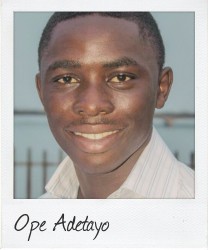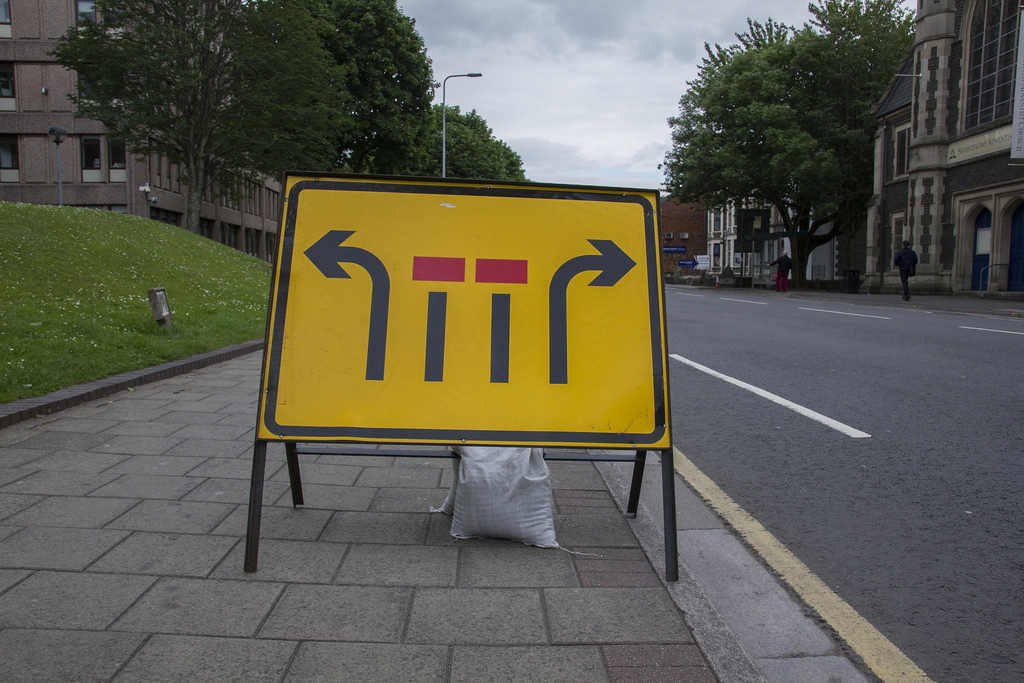“The problem child has a problem with choices”
September 26th, 2017 The public is taught to look to government for answers, but Ope Adetayo, 19, a Correspondent from Lagos, Nigeria, argues that from an early age the public has not been taught to consider its own responsibilities.
The public is taught to look to government for answers, but Ope Adetayo, 19, a Correspondent from Lagos, Nigeria, argues that from an early age the public has not been taught to consider its own responsibilities.
Society feeds a child the information that the beginning and the end of the myriad problems beleaguering Nigerian society are the leaders. The child holds that view religiously, and the view will eventually snowball into hatred for the government.
No one tells the child that the problem is not only the government. It is also the people who choose the government, and that choice is often a function of their loyalties and sentiments rather than deep convictions.
No one tells the psychologically vulnerable child that the major problem is that grown-ups are entrusted to make decisions, but those decisions are misguidedly informed – or misinformed – by tribalism, religious persuasion, political inclination, ethnicity, epicurean needs, selfishness, greed and not rational thinking, not justice, not sincerity, not the societal benefits.
No one tells the child that we the people are the problem.
That child is present in everyone.
The systemic collapse that careers our pluralistic society on the trajectory of serious uncertainty is enabled by the people’s attitude towards the laid-down visions of the country. The system – and by system I mean the psychological and sociological mechanism that dictates our conduct of things in all aspects of our societal existence – has been polluted viciously by festering corruption and aided and abetted by the people who are the immediate victims of the unsavory practice.
The country suffers untamed deterioration orchestrated by both the government and the people. The people are unanimously disunited in their common miseries, pretending that everything is alright as long as government policies do not occasion disappearance of their daily bread, and do not affect their identities in religion, politics, or ethnicity, to name a few.
That is why the optimism dwindles and blemishes the country’s future with a big question mark. 2019 is fast approaching and the game of identity has begun again, the us-versus-them denominator has begun to seep into our psyche again. Why? Because elections are coming.
This is not a mere bitter commentary about the national realities that surface every day. It is a delineation of a much under-estimated cause of the problems. We are not holding ourselves culpable enough, and this eventually makes the radical change we deliriously clamour for elude us and cracks the country further.
I think it is high time everyone looked inwards introspectively and evaluated the posture adopted towards the daily goings-on that drip-feed from our realities. This is a prerequisite for effective analysis of the overall system, and the very first step that must be taken towards achieving the ideal future we all conjure instinctively in our speculations. The problem must be first identified before the cure is administered. It is just that in the Nigerian context, the problem – the people – has problem identifying itself, or accepting the fact that it is a problem. That is a problem itself!
A risible misconception that betrays a shallow intellectual grasp of the political system is that the panacea is a divorce of the constituent regions of the country. This is particularly ludicrous on the basis that the course of action does not change the pervasive ideology that motivates the leaders and the people. Truth be told, the country’s unification is totally negotiable, but I do not see any profound solution in that. The only solution is a radical departure from the current leadership paradigm. Otherwise, whether Nigeria or the splintered elements, things will continue to remain the same.
Having established the axiomatic solution, we must proselytize the gospel of collective efforts channelled towards the re-engineering of our society. The trend that we have followed this far has proved enormously catastrophic. It has to be braked and reversed. We must go back to where we began, the once prospectively great Black nation before the civil war, before greed got the better of our psyche, before the country fell apart.
Reach me on Twitter @Opeadetayo1
photo credit: Dai Lygad Left or Right, but definitely not straight on via photopin (license)
…………………………………………………………………………………………………………………
About me: I am Ope Adetayo, an undergraduate of Performing Arts at the University of Ilorin. I enjoy indelible interest in literary and critical writing, theatre works and journalism among others, which I use as my platform to propagate my ideas, to project a better future for African youths, and to improve its political and humanitarian systems. I am the author of Age and Blood and I hope to write more books in the future.
…………………………………………………………………………………………………………………
Opinions expressed in this article are those of the author and do not necessarily represent the views of the Commonwealth Youth Programme. Articles are published in a spirit of dialogue, respect and understanding. If you disagree, why not submit a response?
To learn more about becoming a Commonwealth Correspondent please visit: http://www.yourcommonwealth.org/submit-articles/
…………………………………………………………………………………………………………………




